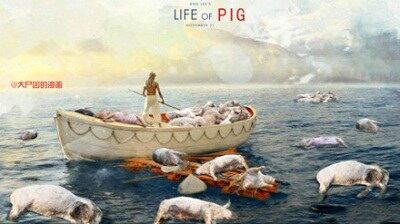Authorities in Shanghai moved on Tuesday to play down fears over drinking water safety after it admitted that thousands more pig carcasses have been fished from a local river near a water pumping station.
The latest figures from city hall put the number of carcases at 5,916, twice the number reported by official media on Monday.
Officials have blamed the flood of dead pigs on lax agricultural management at pig farms near Jiaxing city in the neighboring province of Zhejiang.
"Following the incident with the floating pigs, the Shanghai municipal government is paying close attention to improving the situation on the Huangpu River upstream [from Shanghai]," the government said in a statement via its news website Eastday.com.
In spite of official assurances, local people said they were switching to bottled water.
Employees who answered the phone at supermarkets across Shanghai's Pudong and Minhang districts on Tuesday all said that sales of bottled water had risen sharply in recent days.
"Yes, that's right," said an employee who answered the phone at one of the stores.
"But everything is normal," she added. "We have ordered in extra supplies, so we should be able to meet demand."
'Frightening'
A Minhang resident surnamed Wang said many people had been frightened to see large numbers of fly-blown pig carcasses, some of which were in an advanced state of decay, being hauled out of the river less than 20 kilometers (12.4 miles) from one of the pumping stations for the city's drinking water.
She said she had already brought in large amounts of bottled water for drinking.
"Of course it's frightening," Wang said. "We are basically only drinking from those large containers of spring water now, because of pollution in the tap water."
"For now, we'll only use tap water for bathing and washing things," she said.
Zhejiang-based Internet activist Wu Bin, known by his online nickname Xiucai Jianghu, said the attempt by one official to allay public fears by saying the pigs had died from the cold were typical of the lack of transparency in the current political system.
"This is how the relevant departments in China behave," Wu said. "As soon as some negative news emerges, their first reaction is to say that there isn't a problem, or that it won't affect anything, and to pass the buck."
"After that, they start to find excuses," he said. "It doesn't matter how extraordinary or ridiculous they sound, or whether or not people believe them."
Credibility at risk
Netizens continued to ridicule official pronouncements in the form of spoof posters and political cartoons and on social media.

An artist identified as Dashixiong posted a mock movie poster referencing director Ang Lee‘s recent blockbuster Life of Pi, showing the main character drifting on his life raft with scores of dead pigs aboard and in the water.
According to the Hong Kong University's China Media Project, the cartoon sparked further "Life of Pi" pig posters on social media sites.
A netizen identified as @litmustest reacted to official claims that Shanghai tap water was unaffected by pollution from the pigs: "Does that mean that the pigs are safe to eat? Why don't we serve the leaders some of the Huangpu river pork?" the user tweeted, in comments reported by the blogging portal Global Voices.
Meanwhile, user @LiMingsheng quipped: "More than 2,000 dead pigs entering Huangpu River is not news. More than 20 million Shanghai people drinking dead pig soup for half a month is not news."
"That the Shanghai Water Supply Bureau claimed that Huangpu River's water quality is up to the national drinking water standard: that's news," the user wrote via Global Voices.
Environmentalist Dong Liangjie called on the government to look into the bio-toxicity data in the water supply.
"Don't cover up the truth because of the parliamentary sessions," he wrote. "Don't risk your credibility. If anything goes wrong, the consequences would be too heavy to bear."
Virus detected
Official media reported on Monday that some of the pigs were traced via their ear tags to Jiaxing city in neighboring Zhejiang province, and that a common porcine virus has also been detected in the the river.
The municipal government said it is working with neighboring provinces to trace the origin of the carcasses, Xinhua news agency quoted local officials as saying.
But Elizabeth Economy, director for Asia Studies at the New York-based Council on Foreign Relations (CFR), said a lack of transparency is one of the chief problems in environmental protection in China.
"These problems are emblematic of a systemic challenge, and nothing short of an overhaul in how the environmental protection is managed from top to bottom will suffice," she wrote in a commentary in a CFR blog Tuesday.
"While the Shanghai government can’t deny the existence of the pigs, they are saying that the tap water is safe," she wrote.
"Only the dogged determination of Chinese journalists keeps the truth coming."
Reported by Fung Yat-yiu for RFA's Cantonese Service and by Yang Fan for the Mandarin Service. Translated and written in English by Luisetta Mudie.
